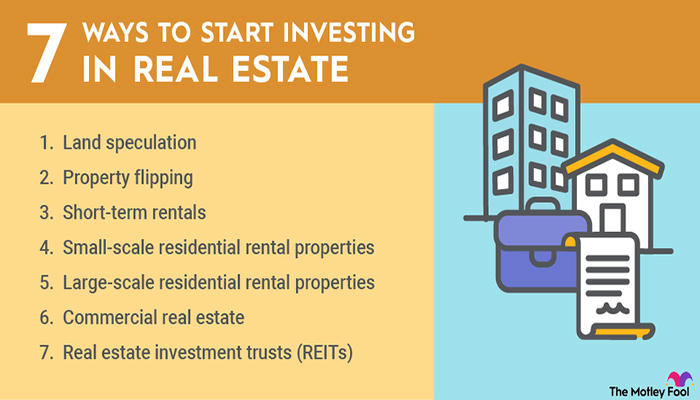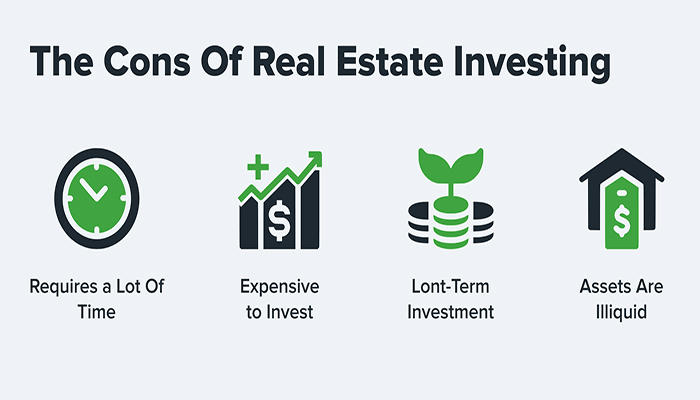Protecting Your Real Estate Investment from a Recession: Key Strategies
Economic cycles are inevitable, and with signs pointing to a potential recession, real estate investors must take proactive steps to safeguard their investments. While downturns can pose challenges, they also present opportunities for those who are prepared. Here are actionable strategies to help you protect your real estate portfolio and even thrive during tough economic times.

Exercise Caution with Leverage
Excessive debt can leave you vulnerable during a recession. High leverage and the associated servicing costs may strain your finances, especially if refinancing becomes difficult. To mitigate this risk, consider renegotiating or refinancing your loans now to secure longer terms and lower interest rates. Strengthening your financial position before a downturn can provide much-needed stability.
Accelerate Sales Plans
If you’re considering selling properties, it may be wise to expedite your timeline. Property values and cap rates often take years to recover after a recession, so delaying a sale could mean settling for lower returns. Alternatively, if you’re uncertain about a property’s long-term potential—due to its location, tenants, or condition—selling now or opting for a like-kind exchange to reinvest in a more stable asset could be a smart move.
Review and Strengthen Leases
Vacancy rates tend to rise during recessions, and rents may stagnate or decline, impacting cash flow. Review your leases to identify which tenants are likely to remain reliable during an economic downturn. Focus on industries that are more recession-resistant and consider extending leases with stable tenants. For tenants in vulnerable sectors, plan ahead to replace them if necessary, ensuring your property remains income-generating.
Build Cash Reserves
In prosperous times, it’s tempting to spend freely, but building cash reserves is crucial for weathering a recession. Reduce or delay owner distributions and allow funds to accumulate in your operating accounts. This financial cushion can cover future improvements, leasing commissions, or revenue shortfalls, ensuring you’re prepared for unexpected challenges.
Address Repairs and Upgrades Promptly

Don’t postpone property improvements. Use available capital and low interest rates to tackle repairs, renovations, and upgrades now. Enhancing your property’s condition and curb appeal not only benefits current tenants but also makes it more attractive to future renters or buyers, even in a down market.
Invest in Technology
Automation and technology can streamline operations and reduce costs, making your business more efficient and resilient. Research scalable solutions for routine tasks like property management and sales, freeing up your team to focus on higher-value activities. Embracing technology now can position you for long-term success.
Cultivate Strong Relationships
Building and maintaining strong relationships with clients, lenders, and industry professionals is essential during uncertain times. Excellent communication and customer service can help retain existing clients and attract new ones. Consider reading The Go-Giver for insights on fostering meaningful connections that drive business growth.
Stay Adaptable
Flexibility is key to navigating a recession. Be prepared to adjust your business strategy in response to market shifts. This might involve revising your marketing approach, altering your commission structure, or introducing new services to meet changing client needs.
Focus on Niche Markets
Targeting niche markets, such as luxury homes, investment properties, or first-time homebuyers, can set you apart from competitors. Specializing in a specific segment allows you to deepen your expertise and attract clients even during economic downturns.
Maintain a Positive Mindset

Recessions are temporary, and maintaining a positive attitude is crucial. Stay motivated, focus on your goals, and remain open to adapting your strategies as needed. A resilient mindset will help you identify opportunities and navigate challenges effectively.
Commit to Continuous Learning
The real estate market is constantly evolving, and staying informed is essential. Participate in industry events, attend seminars, and continuously enhance your skills and knowledge. Ensure your brokerage or local association supports ongoing education. By staying ahead of trends and providing expert guidance, you’ll demonstrate your value to clients and secure long-term success.
Bonus Tip: Strengthen Your Business Systems
Use slower periods to optimize your business operations. Streamline processes, improve organization, and invest in automation. When the market rebounds, you’ll be well-positioned to capitalize on new opportunities and grow rapidly. Establishing yourself as a trusted authority with strong business strategies will set you apart from competitors.
Conclusion
While recessions can be challenging, they also offer opportunities for prepared investors. By managing leverage, accelerating sales, strengthening leases, building cash reserves, and embracing technology, you can protect your real estate investments and even thrive during tough times. Stay adaptable, focus on niche markets, and maintain a positive mindset to navigate economic cycles successfully. With the right strategies in place, you can safeguard your portfolio and emerge stronger when the market recovers.
